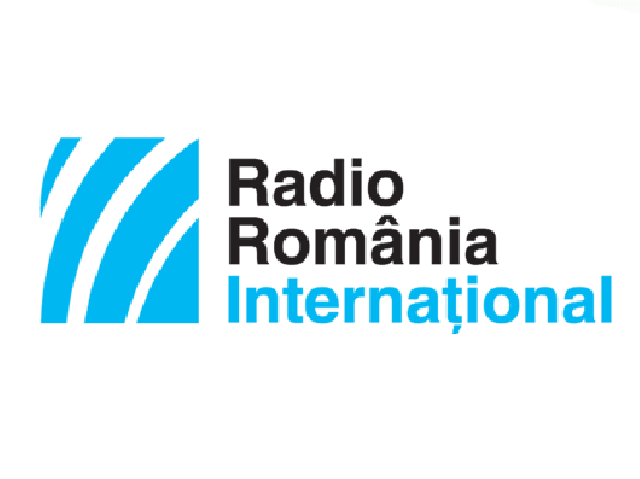People for sale in communist Romania
One way of making money for the communist state was to sell its citizens who wished to leave the country.

Steliu Lambru, 14.07.2014, 13:08
With an economy ruined by war, by payment of war reparations to the Soviet Union and by systematic plundering, communist Romania was struggling to ensure minimum living standards for its people. The Securitate, the communist political police that had also undertaken an economic role, showed unlimited resourcefulness in procuring hard currency. And one of the ways to make money for the state was to sell people, more specifically those people who wished to leave Romania, especially members of the Jewish and German minorities. But in the 1970s and 1980s, such payments became a prerequisite for leaving Romania, and even ethnic Romanians who wished to flee the country could be “bought” by their relatives abroad.
Germina Nagat is a researcher with the National Council for Studying the Archives of the Securitate. She told us how people began being sold by the communist authorities of the time:
”One of the files, the Foreign Intelligence Service file no. 2871, reports an incident that I believe could be a starting point in our efforts to understand how it all began. In May 1958, the Romanian Securitate office in London reported to Bucharest that arrangements had been made for renting an airplane to carry 11 Landrace pigs, purchased through a British dealer called Henry Jakober, code name Kraus. He might be the central figure in initiating and broadening the operative arrangement, as it was called, through which the Securitate took hundreds of thousands of people out of the country, most of them belonging to the ethnic Jewish and German communities. Born in 1900 in Moravia, in the former Habsburg Empire and having emigrated to England in the 1930s, a successful businessman and familiar with Romania since before WW1, Jakober was, in 1958, the manager of Oil Cakes & Doyle Seeds based in London. He had strong business relations with the Agriculture Ministry, the Ministry of Commerce and many companies in the People’s Republic of Romania. He understood Romanian well and even spoke it a little. In his discussions with his partners in Bucharest, most of them under cover officers working for the Securitate, he voiced anti-royalist views and great admiration for the political developments in Romania. At first, Mr. Jakober undertook to provide Romania not only with livestock, but also with genetic material from Denmark, and in May 1958 a first purchase of Landrace pigs is made.”
The transition from buying farm animals to buying people was swift, owing much to the resilience of the businessman and to the cash-hungry Securitate:
“One year after the first successful transaction, in May 1959, a report by Directorate 1 mentions that the British MP John Platz tried to persuade the Romanian authorities to allow a Jewish family to leave the country. At first, Jakober, who claimed to be talking on behalf of the British MP, was told that it was not a matter for the Ministry of Commerce to deal with, but that the contacts of those in charge would be provided to him. In September 1959, the Romanian citizen Beri Bernard (Marcu) sent a memo to the Interior Ministry, requesting the release from prison of his father, sentenced to forced labour in 1954 for hard currency trafficking. In this memo, Mr. Bernard offers to pay damages of 10,000 US dollars to the Romanian state, and explains that the money originates from his relatives abroad and will be paid in exchange for the release from prison and a visa for Israel. Bernard’s request was granted, and this seems to be the first visa sold for money, with the approval of high-level officials. What is important, in my opinion, was that the money also covered the release from prison.”
The business potential of the deal was much greater, and the regime in Bucharest had no intention of missing on such an opportunity. Germina Nagat:
“After successfully completing other imports of swine, poultry, cattle and other commodities, in April 1960 the Securitate decides on the following course of action, following talks with Mr. Jakober in London: upon the arrival of the first shipment of cattle or sheep into the country, Mentzer Marcu, Beri’s father, would get an exit visa, since Jakober would not get a single cent until Mentzer had gone. Then Beri Marcu’s relatives would be allowed to go after the shipment of Corriedale sheep arrived, while Beri would be allowed to go after the shipment of Zebu cattle arrived. The documents we quoted capture the moment when the bargaining per head of person started in earnest, as between true business people. The trade negotiations for cattle, sheep and swine were carried out at first concurrently with those for releasing people, and were recorded in the same documents. After farm animals, which included a few Collie puppies, the Securitate asked Jakober for feed, for milking machines, for machinery for the drug industry, and others as well. In November 1961, the basic rule was that all deals were cash-on-delivery only. The Romanian authorities, interested in special products and equally in money, issued without hesitation approvals for emigration, required for, quote, ‘re-establishing normal relations with Jakober, also with a view to ensuring future deals.’”
Even though at some point the Bucharest authorities sought a way out of that business, it was much too tempting and lucrative to let go. 11,000 Deutschmarks was the fee in the 1980s for an ethnic German with higher education to be allowed to travel to West Germany. It is difficult to estimate the total amounts this business had generated. For ethnic Saxons alone, figures speak of 250,000 to as many as 400,000 people whose freedom was bought.






























